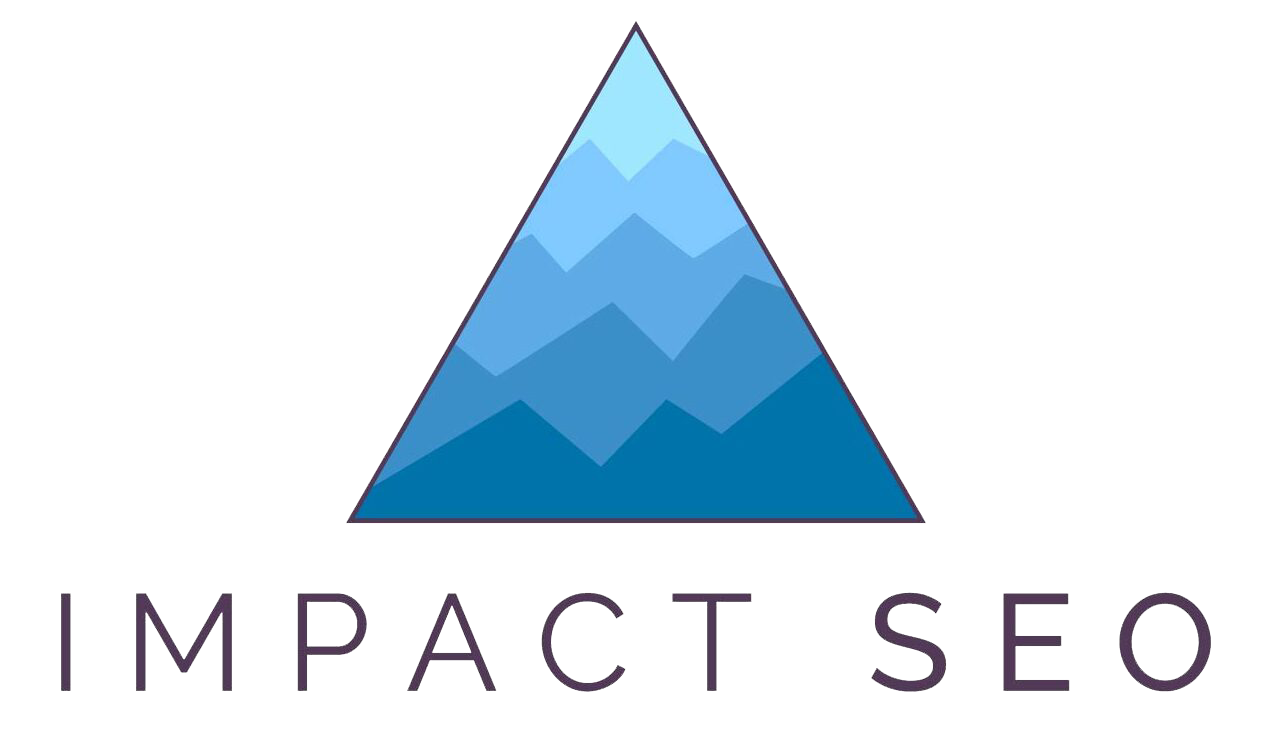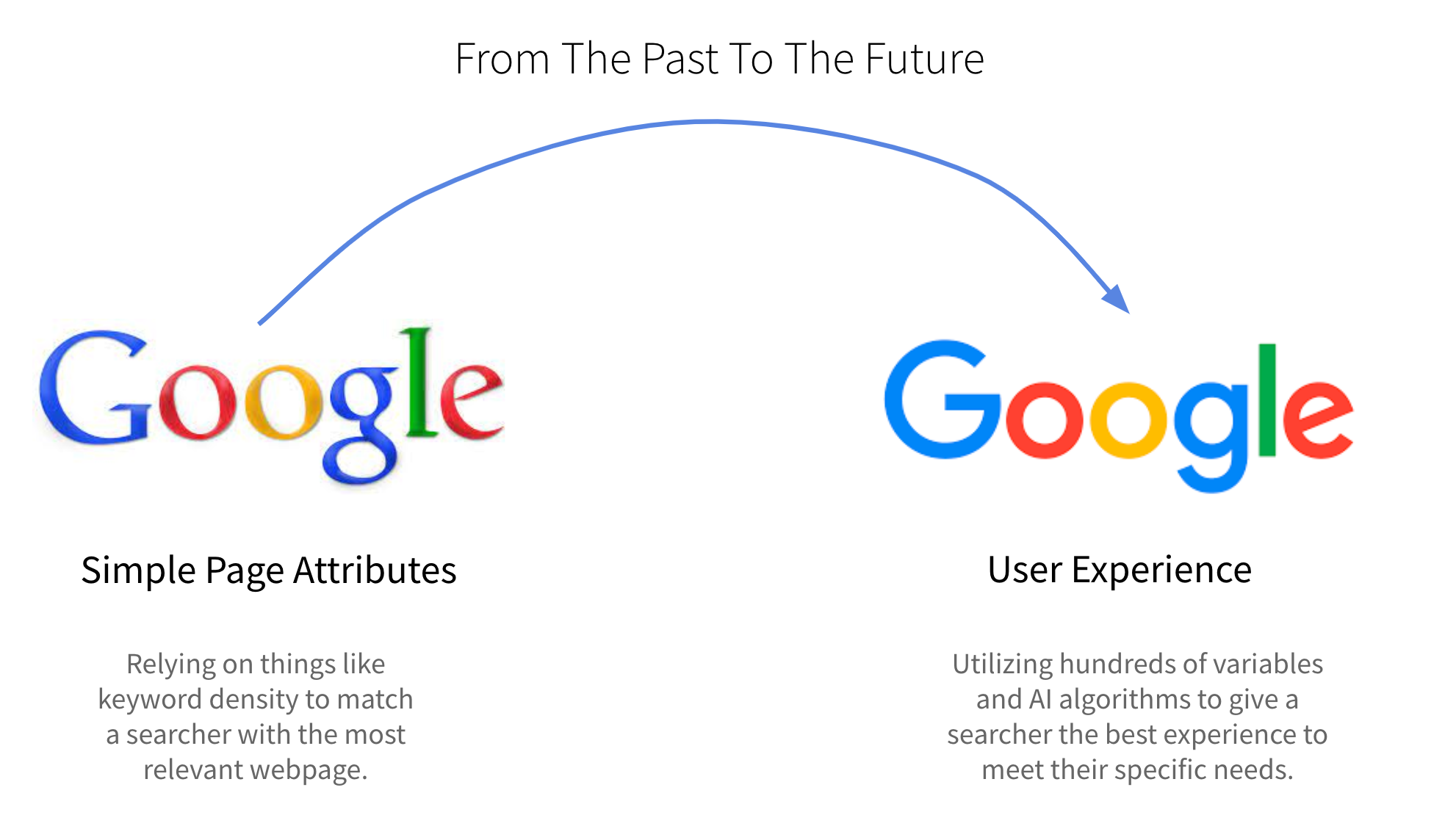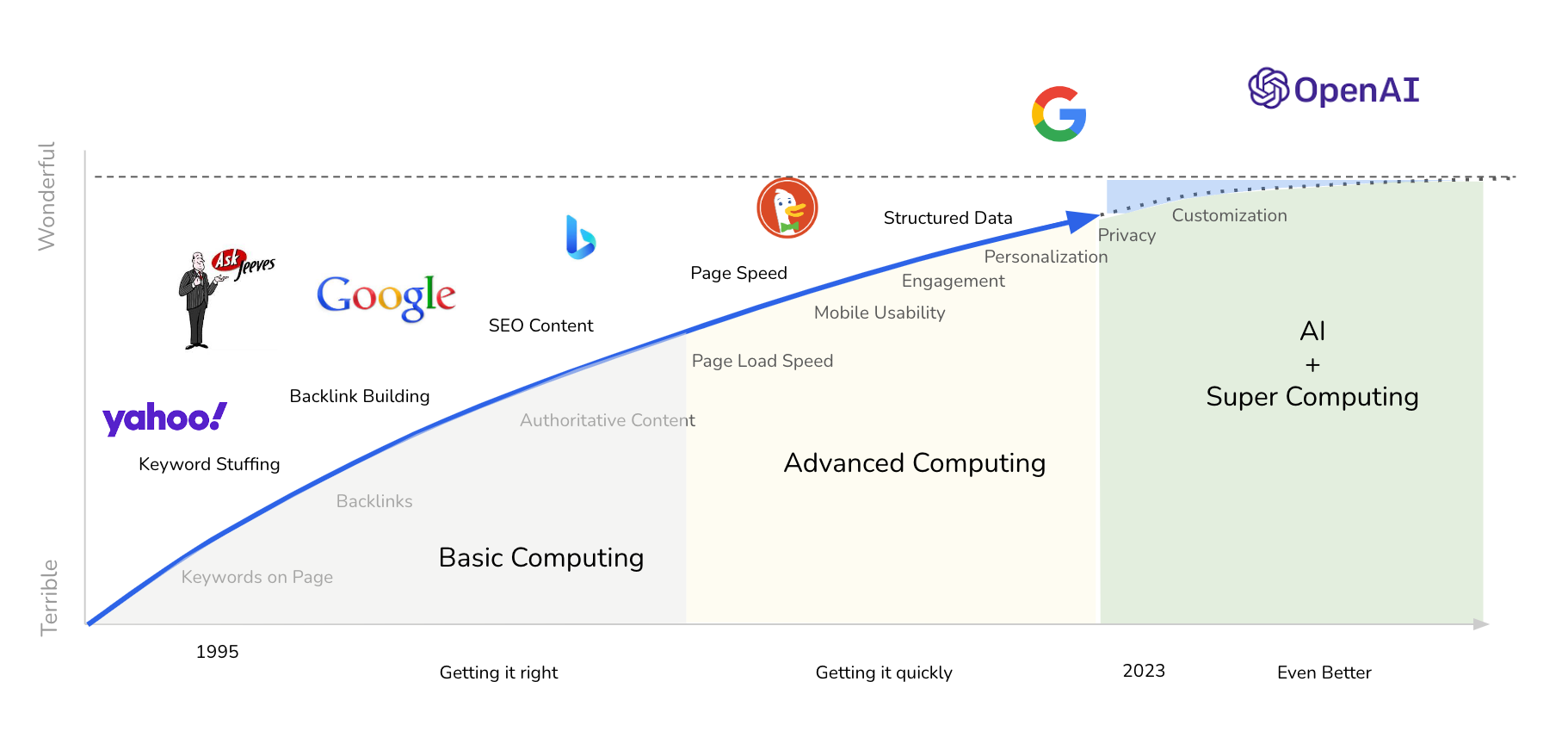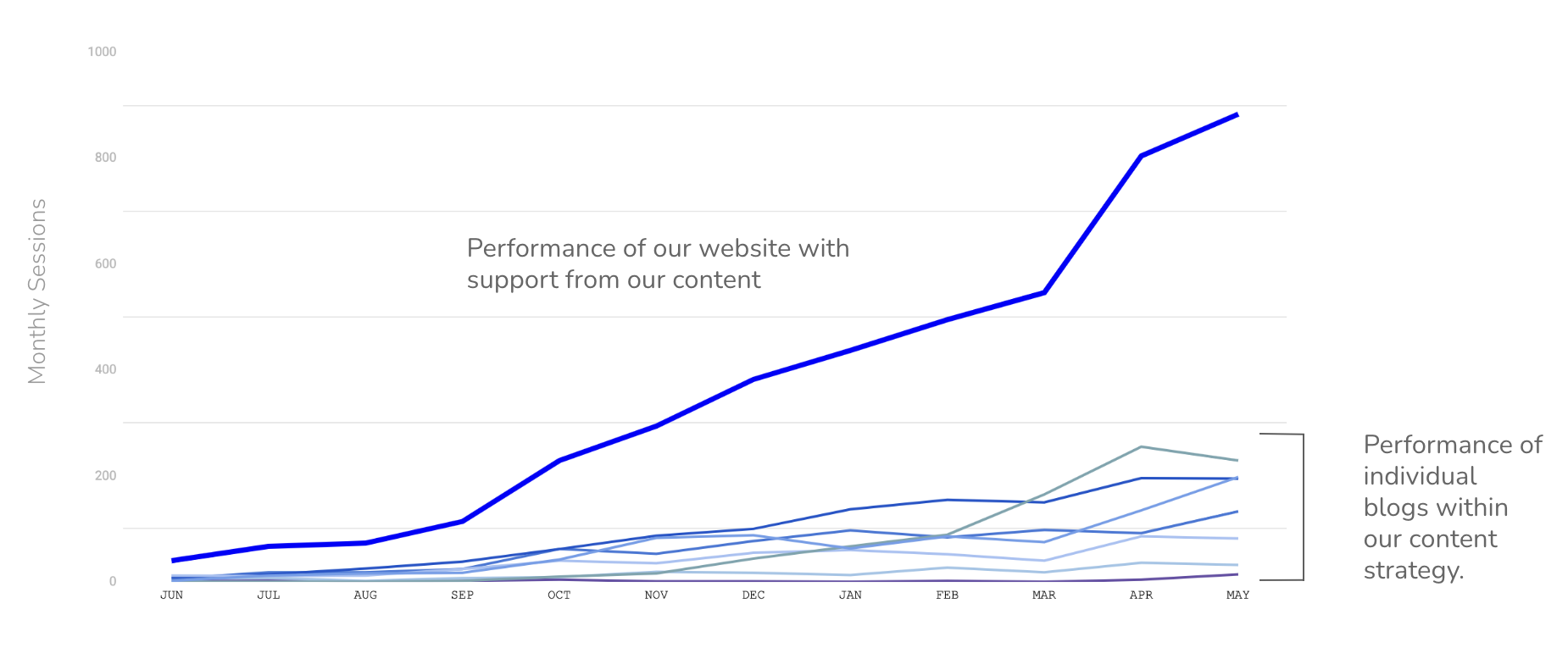In the new world of SEO link building isn’t a requirement, but if done right it can significantly bolster your growth. This short guide will help orient you with a sustainable link building strategy that supports your growth goals without getting you penalized.
What We Cover:
Backlink Recap – what are links and why are they important?
Link Evaluations – how do I know which links will boost my rankings?
Link Building – the levers of building links and how maximize return on effort
Why Are Links Important? How Do They Grow My Business?
Imagine yourself in the old days… life before the internet… you’re visiting Oaxaca and want to hit the best local restaurants while you’re there. What do you do? You’ll likely look for a restaurant that was visited by a credible critic like Anthony Bourdain or mentioned as a top choice in your Moon guidebook. You may also ask the staff at your hotel for some ideas.
You take in the info you’ve gathered, weighting some sources – like the approval of Bourdain – as more reliable than others, and make a final decision about where to eat.
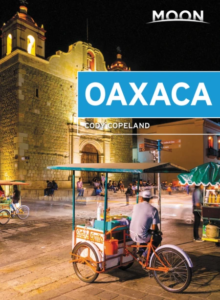
Search engines do the same thing, but on a much larger scale.
On the internet, just like in real life, trust is established through a network of recommendations and references. These are called links. If websites like Bourdain’s explorepartsunknown.com and The Moon Guide’s moon.com both mention a restaurant, those are reliable signals that it’s a reputable place to eat. Google picks these signals up – along with thousands of other signals – and interprets them to deliver you the best recommendation.
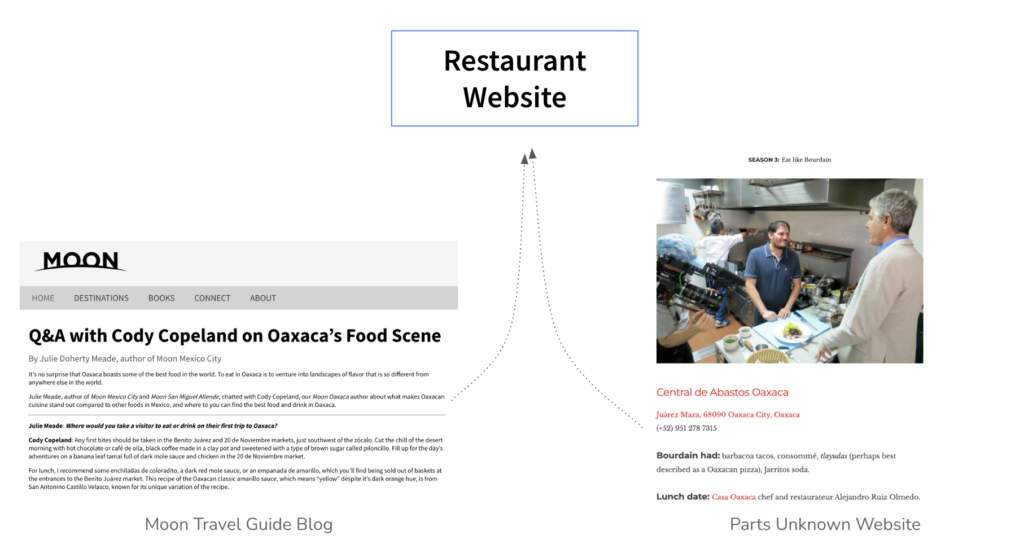
And, just like you giving Bourdain’s recommendation more weight than the receptionist at the hotel… not all references on the web (links) are equal. Links from authoritative and relevant websites hold more weight.
How Do We Get More Links?
If you’re a restaurant, the best way to get positive references is to make your customers happy by consistently serving amazing food and providing a great experience. But this isn’t always enough. There are other things you can do to help encourage the right people to review your restaurant. For example, you might try reaching out to food critics and inviting them to come try your signature dish. If your food really is good, they’ll likely write a review about your restaurant, building your trust with the community and growing your business.
The tactics and techniques for building trust on the internet are a little different, but the concept is the same. Getting relevant websites to link back to our website, thereby improving our trust score with the almighty Google, is called link building. Apart from providing the best possible experience for your target audience, it’s the best way to improve your keyword rankings.
The rest of this post will explain the finer points of link building and how to approach it in a way that maximizes your chance for growth while minimizing potential downside.
Not All Links Are Equal: How To Evaluate Opportunities & Allocate Resources
Having a simple methodology for valuing links will help us know which ones to go after and how to allocate our resources in attaining them. Without this framework we risk going down a deep, dark, and expensive SEO rabbit hole (not good).
Link Relevance
Imagine if you asked a movie critic for a food recommendation. It would be more helpful than having no input, but not nearly as helpful as if you asked a local foodie. The same goes for links. We’re looking for sites within or similar to our own niche. (more details on this in the next section…)
Link Strength (Reputation)
I’d weight the opinion of a seasoned foodie over a newbie. The same rules apply to links.
Links from reputable websites hold more weight. Reputable website generally have these characteristics:
- Age – they’ve established a brand and following
- Quality – their site is well designed and their content well written
- Links – they usually have many sites referencing theirs
Within a website some pages have higher authority than others. A link from one page might be much more powerful than a link from another page on the same website. The key metrics for measuring link strength are based on where the link comes from:
- Domain Authority – how reputable is the website
- Page Authority – how reputable is that specific page
Strong links come from prominent pages on authoritative websites.
The Authority-Relevance Link Matrix
Here’s how we measure how valuable links are. High relevance and high quality is our bulls-eye.
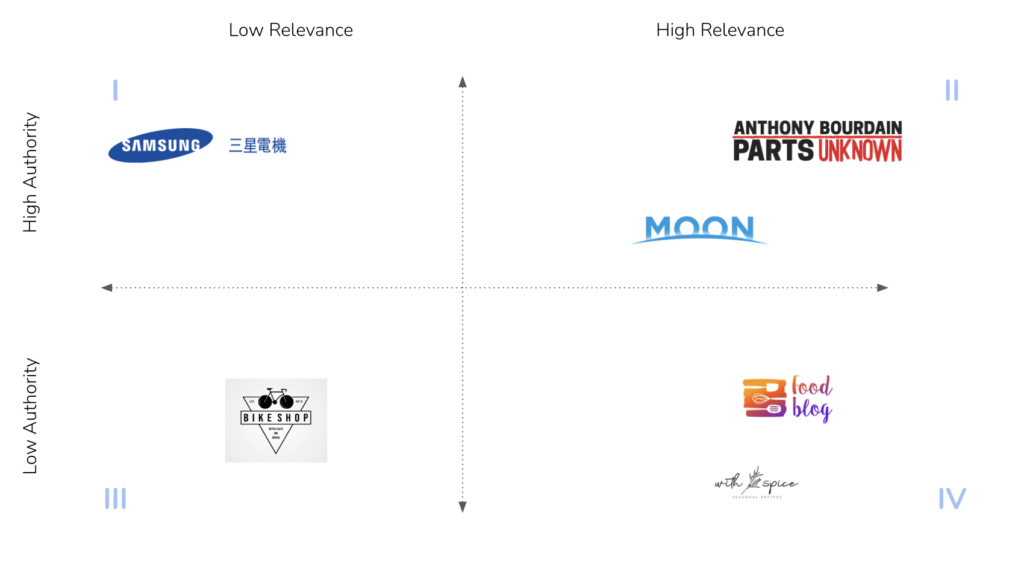
Quadrants
Best: Quadrant II – High Authority AND High Relevance
- Usually difficult to attain
- Very valuable
- Will have a big impact on your rankings
Very Good: Quadrant IV – High Relevance but Low Authority
- Easier to attain
- Still very valuable
- Will usually need several to see significant impact in rankings
Okay: Quadrant I – High Authority but Low Relevance
- Difficult to attain
- Somewhat valuable (depending on context of content)
- Can have an impact on ranking in many cases
Not Good: Quadrant III – Low Authority AND Low Relevance
- Easier to attain
- Little to no value
- Not likely to impact ranking
We want to focus our efforts more in quadrants II and IV. These links are easier to attain because they are from sites that would naturally link to us; and they will have the biggest impact on our keyword rankings.
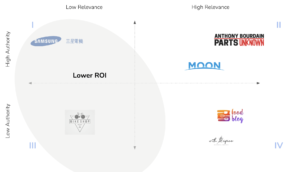
A Simple Way To Evaluate Link Potential
To help determine what quadrant a potential website is in, ask yourself these questions:
- Is this a well-known website within my niche? (authority)
- Are people likely to visit this page? (authority)
- Are the people who visiting this page similar to my target audience? (relevance)
- If this page were to link to my site, would someone click on it? (relevance)
- If they click on the link will they get what they’re looking for? (relevance)
Link Placement
Where a link comes from is important… and where it goes is too…
If you’re already known for having the best banh mi in town, you’ll get plenty of people interested in that dish. But what if you have a really great fusion taco you want people to know about? Getting more food critics to review your banh mi won’t help you sell many more tacos… You’re better off working on getting more taco reviews and less banh mi reviews.

This concept applies to the digital world too.
You may have one webpage that is already ranking very well in the search results, but another that is not doing so great. If you get a link to a page that is already ranking #1, it isn’t going to move up any higher.
But if you get a few links to a page that is ranking #10, chances are pretty good it will move up closer to the top of the first page.
Key Takeaway: When you’re allocating resources, make sure you know which pages are most likely to benefit from new links.
Link Building Strategies
There are many clever ways to attract quality links to your website. In future posts we’ll explore some of these case studies in more detail. For now, here’s a quick overview of effective strategies and how we classify them:
Passive vs Active Link Building
Passive Link Building – this should be part of everyone’s strategy because it requires little-to-no additional effort on your part. The theory is simple:
- We create great content
- People find it and link to it
The key here is creating high quality content that is worthy of a reference. It should be a resource for your target audience, but you may find a little more success in creating content that is a little outside your main TA focus but has more of a chance to be “viral”.
Active Link Building – takes passive link building a few steps further and can provide a strategic advantage over competitors who aren’t doing this. Active link building includes:
- Strategically seeking out links back to specific pages that need them the most
- Conducting outreach to encourage other sites to link to your content
- Boosting content on channels like Facebook or Google Ads with the intent of getting some people in your industry to see it and link to it
Safe Active Link Building Strategies
Here are the safest link-building strategies:
Resource Creation + Promotion
Create a resource for your niche, share it via social media, forums, etc., and hope others will reference it. Common resources used to attract links include: industry reports, infographics, or tools (like a taco finder app).
Am I making “link-worthy” content? Things that typically attract links:
- New – new discovery, information, or insight. If you’re the first to break it then other communication channels will likely pick it up and reference back to you as the source.
- Novel – is it offering a new way to think about an old problem?
- Useful – does it save people time or otherwise help them solve a problem?
Guest Blogging
Write a blog post for another website in your industry and include a link back to your website. This can be done naturally if you have content that can naturally be referenced. Or, you can include a link back to your site in your author bio.
Digital Networking
You can share your content with digital communities like groups on Facebook or message boards on Reddit. This only works if your content and your comments are authentic.
PR’ing
You can work with someone who has connections to relevant news / journalist outlets. They can guide you on creating content like a news release, then help disseminate it where appropriate.
These are the 4 common strategies that work across most niches. Other strategies that can be effective in some niches include:
- Direct Outreach
- Broken Link Building
- Affiliate Programs
- Badges
- (and many more)
These strategies are more sophisticated and only work in certain situations. We’ll take a deeper dive on these in a future post.
